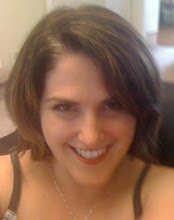Book 51:
My Fair Lazy: One Reality Television Addict's Attempt to Discover if Not Being a Dumbass is the New Black,
Or, A Culture-up Manifesto
Jen Lancaster
Any time I pick up a Jen Lancaster book, or in this case, listen to one, I feel like I am sitting down to catch up with a snarky, wine-swilling, smart-assed girl friend. In other words, it's a good time.
I first discovered Jen Lancaster in Bitter is the New Black, and found myself laughing out loud on an airplane between Boston and Atlanta. I couldn't help it. It was that funny.
I've read all of Lancaster's books, but some I've identified more with than others. My Fair Lazy was one where I felt like we were largely on the same wave length. I'm nowhere near the reality TV junkie Jen is, but I do like my share of the Real Housewives . Similarly, The Breakfast Club and Sixteen Candles hold a special place in my heart. So I was right there with Lancaster when she realized that her knowledge of all things pop culture might not be completely helpful to her in a number of social situations. And thus begins her Jenaissance. Her quest to get some culture and expand her horizons.
Lancaster's series of essays around this subject are both amusing and thought provoking, and at times, poignant. As she explores live theater, world cuisines, and difference cities, Jen realizes her attitude may have been one of the reasons she lost her job in the dot com bust of the early 2000s.
She learns a lot about herself, which is endearing to read about. Anyone who's been on any type of journey of self-discovery will relate. At the same time, she learns to balance her love of the superficial with an appreciation of the cultural and intellectual. In other words, well-rounded.
Chock full of the wit and style Lancaster is known for, My Fair Lazy will not disappoint fans, or newcomers, to her work. And we all know that anyone who can still argue the finer points of Jake Ryan is bound to be fun at a dinner party.

